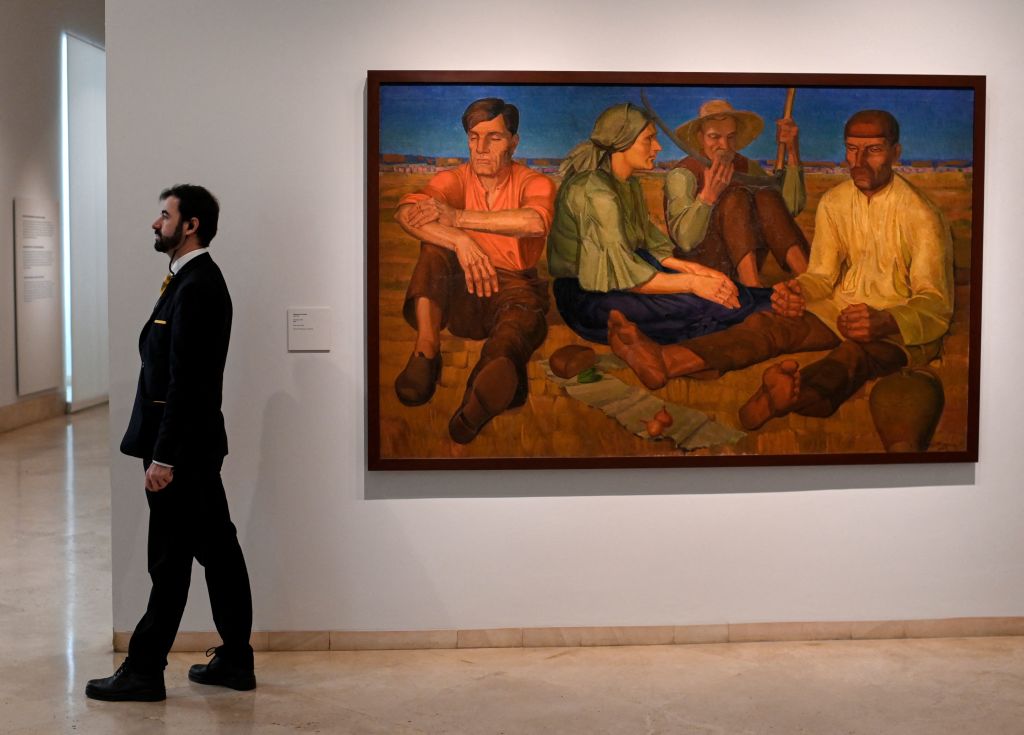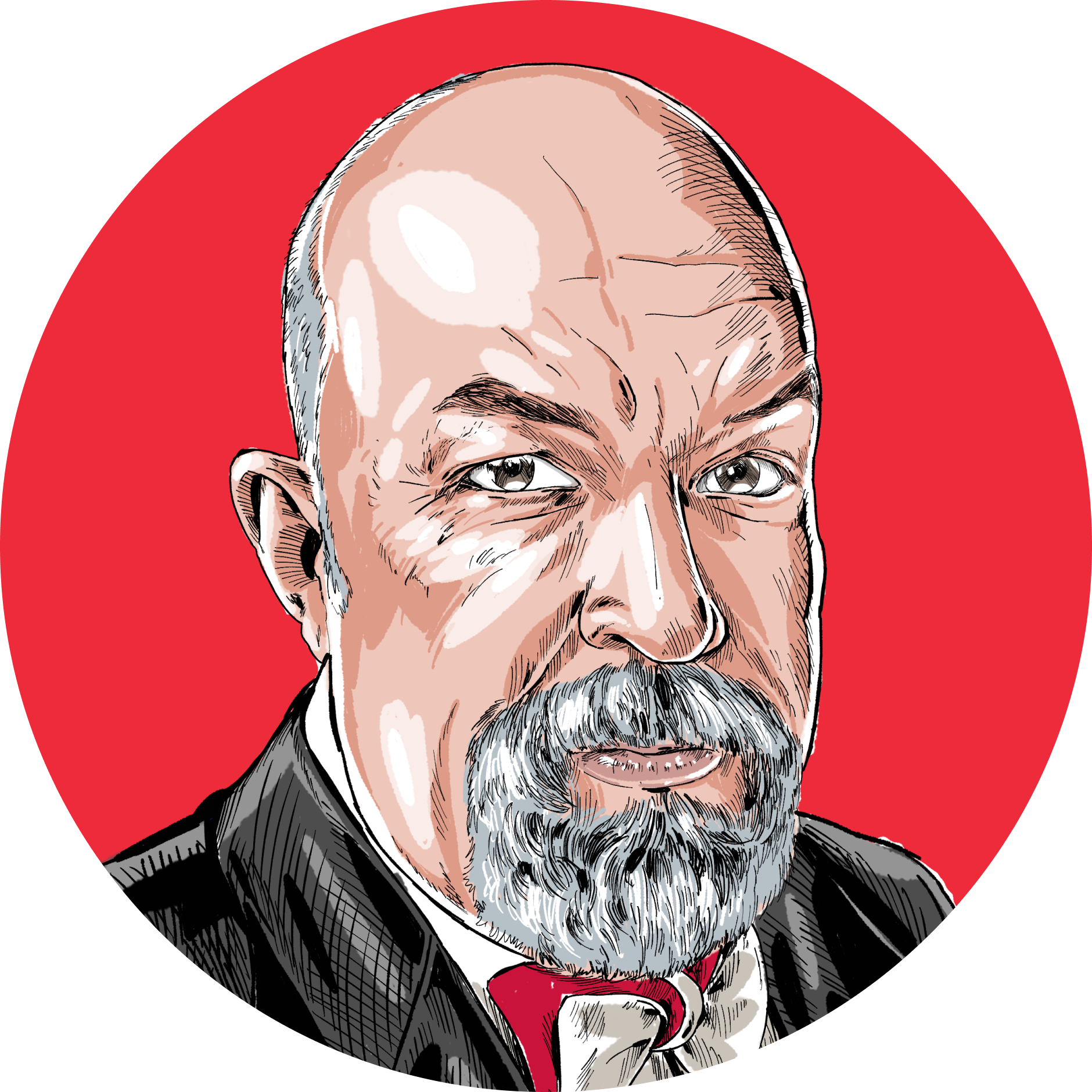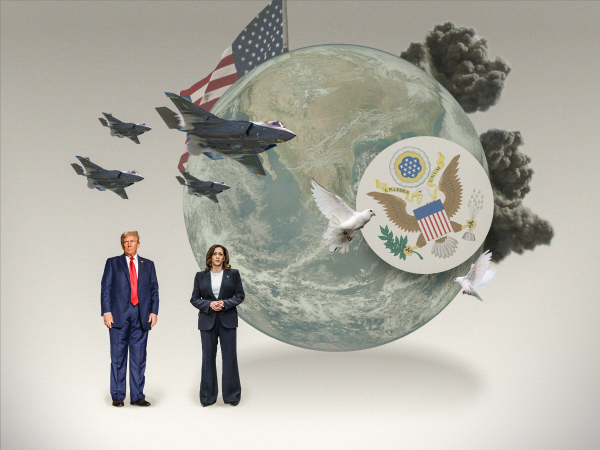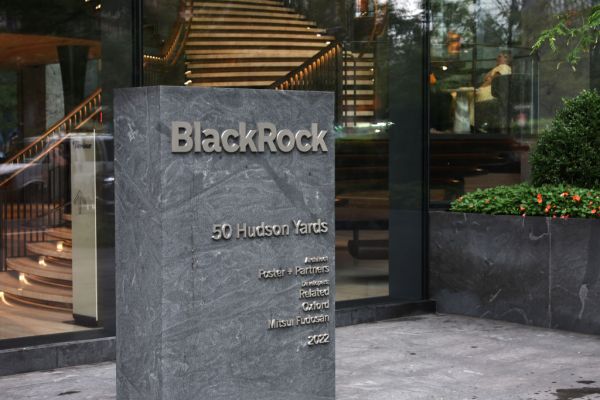“There are three kinds of people: our enemies, our friends, and ourselves.”
—Mao Zedong, “Talks at the Ya’nan Conference on Literature and Art”
Both the people and the institutions of Ukraine are under attack by the Russian forces who are trying to murder, terrorize, torture, and rape the Ukrainians into submission to Vladimir Putin. The Russians have not been particularly successful so far, though they have imposed terrible suffering on Ukraine. Most of the material damage cannot be mitigated, but some can, which is why there is a new exhibition at the Thyssen-Bornemisza National Museum in Madrid: “In the Eye of the Storm. Modernism in Ukraine, 1900–1930.”
Why airlift paintings to safety when people are dying? Because what Ukrainian patriots mean to conserve is Ukraine: her people first and foremost, of course, but there is more to a nation than those of its people who happen to be alive on any given day. A nation has a history and a future. The exhibition is a celebration of Ukrainian artistic achievement, but it also serves a practical purpose—to put these works of art beyond the reach of the Russian forces who would seek to destroy them in their campaign to erase the idea of Ukrainian-ness from the world entirely.
They are not the first Russians to do so. As one of the show’s organizers says, many of these works had been kept in an “art gulag” for years—the version of the Russian Empire that we used to call the Soviet Union resembled its Nazi rival in many ways, including in its hatred for “degenerate art.” A great deal of modern art was judged by Moscow to be insufficiently socialist–which in practical terms often meant insufficiently nationalistic. Inspecting a painting that did not accord with his taste, such as it was, Nikita Khrushchev buttonholed the artist to berate him publicly: “Are you a pederast or a normal man?” The language and imagination of these authoritarians is always the same—addressing a group of artists and museum administrators on the same occasion, he demanded: “Are you pederasts or normal people?”
What is this anyway? You think we old fellows don’t understand you. And we think we are just wasting money on you. Are you pederasts or normal people? I’ll be perfectly straightforward with you; we won’t spend a kopeck on your art. Just give me a list of those of you who want to go abroad, to the so-called ‘free world.’ We’ll give you foreign passports tomorrow, and you can get out. Your prospects here are nil. What is hung here is simply anti-Soviet. It’s amoral. Art should ennoble the individual and arouse him to action. And what have you set out here? Who painted this picture? I want to talk to him. What’s the good of a picture like this? To cover urinals with?
He criticized the composer and pianist Dmitri Shostakovich for experimenting with jazz:
I don’t like jazz. When I hear jazz, it’s as if I had gas on the stomach. I used to think it was static when I heard it on the radio. I like music a lot and often listen to it on the radio. I even went so far as to carry a little Japanese radio around in my pocket. They make them very well there.
Even Shostakovich surprised us once in this connection. At the final concert of the plenary meeting of the Composers’ Union we were regaled with a trio which wasn’t entirely pleasurable listening.
Jazz comes from the Negroes. They’ve had it for a long time, and here it’s treated as a novelty.
In translation, Khrushchev’s voice is almost perfectly recognizable: It is the voice of Fox News, Bill O’Reilly, Donald Trump, Xi Jinping, Archie Bunker, Twitter, talk radio—the sneering ignoramus who detests anything modern and urbane, particularly anything modern, urbane, and foreign? Modern dance? The Soviets preferred the local folk dances. “I understand our own Russian dances a lot better, Georgian and Armenian ones too. They are wonderful dances,” Khrushchev insisted. (The best dances!) The only difference in language is in the bureaucratic formulations, “plenary meeting of the Composers’ Union” and such. The communists were mad for meetings.
They still are. At a 2014 meeting of Chinese cultural leaders, Xi denounced “immoral art” and “pure sensual entertainment,” calling for a more nationalistic and ideological school of Chinese art, one that will “disseminate contemporary Chinese values, embody Chinese traditional culture, and reflect the Chinese people’s aesthetic pursuit.” Xi demanded that Chinese artists communicate “socialist values” and insisted that “fine art works should be like sunshine from blue sky and breeze in spring that will inspire minds, warm hearts, cultivate taste and clean up undesirable work styles.” One imagines “undesirable work styles” sounded better in Chinese.
Xi intentionally echoed Mao Zedong, who insisted that out-of-touch elite intellectuals were spiritually—and physically—unclean. Please forgive a long quotation:
Since the audience for literature and art consists of workers, peasants, soldiers, and their cadres, the question then arises of how to get to understand and know these people properly. … How have our workers in literature and art performed in this respect until now? I would say that until now they have been heroes without a battlefield, remote and uncomprehending. … Workers in literature and art are unfamiliar with the people they write about and with the people who read their work, or else have actually become estranged from them. Our workers in literature and art are not familiar with workers, peasants, soldiers, or even their cadres. … Yours is the language of intellectuals, theirs is the language of the popular masses. I have mentioned before that many comrades like to talk about “popularization,” but what does popularization mean? It means that the thoughts and emotions of our workers in literature and art should become one with the thoughts and emotions of the great masses of workers, peasants, and soldiers.
And to get this unity, we should start by studying the language of the masses. If we don’t even understand the masses’ language, how can we talk about creating literature and art? “Heroes without a battlefield” refers to the fact that all your fine principles are not appreciated by the masses. The more you parade your qualifications before the masses, the more you act like “heroes,” and the harder you try to sell your principles to them, the more the masses will resist buying. If you want the masses to understand you, if you want to become one with the masses, you must make a firm decision to undergo a long and possibly painful process of trial and hardship.
At this point let me relate my own experience in how feelings are transformed. I started off as a student at school, and at school I acquired student habits. … I felt that intellectuals were the only clean people in the world, and that workers, peasants, and soldiers were in general rather dirty. I could wear clothes borrowed from an intellectual, because I considered them clean, but I would not wear workers’, peasants’, or soldiers’ clothes, because I thought they were dirty. When I joined the revolution and lived among workers, peasants, and soldiers, I gradually became familiar with them and they got to know me in return. Then and only then the bourgeois and petty bourgeois feelings taught to me in bourgeois schools began to undergo a fundamental change. Comparing intellectuals who have not yet reformed with workers, peasants, and soldiers, I came to feel that intellectuals are not only spiritually unclean in many respects but even physically unclean, while the cleanest people are workers and peasants; their hands may be dirty and their feet soiled with cow dung, but they are still cleaner than the big and petty bourgeoisie.
What is art good for? What can we do with it? What use can be made of it?
“Nothing can be considered good unless a large number of people benefit greatly from it,” Mao said. It was in his view immoral for an artist to create work that “appeals only to himself and his friends or a small group of people,” to work on anything that “the majority does not need and which may even be harmful to it.” And what kind of art is harmful to the majority? I suppose the Taliban had some idea of that in mind when they were blowing up all those Buddhist monuments.
Most authoritarians have no real interest in art—the opera-loving and art-mad Adolf Hitler is one of the rare exceptions, but Hitler was very much like his less aesthetically oriented fellow dictators and mass murderers in that he was keenly interested in the question of what art can be used for. For the less creative and philosophical kind of caudillo, art is at best a tool for propaganda, and many artists—even some great ones—are happy to work as propagandists: Every Lenin finds his Diego Rivera, every Stalin his John Steinbeck, every Mussolini his Ezra Pound. (Literature’s homely stepsister, journalism, is only too eager to be recruited into propaganda—journalists are happy to be asked to the dance at all.) Others, such as Mao and Hitler, believe that art has the power to transform society in some way that is consonant with their political ambitions: Many of the top Nazis and Soviets were cynics, but many of them were romantics who believed in the notion of creating a new man, one who has been spiritually renewed so that he may properly enjoy the new material abundance that is always at the end of just one more five-year plan. The Russians, like the Taliban cretins who blew up all those Buddhas, simply want to ensure that there is no cultural competitor left on the field in Ukraine or elsewhere in the Little Caesar’s would-be sphere of influence.
There are little tyrants among us as well as great ones, the ones who insist that the value of a work of art or literature is in some political criterion: Is it good for the gays? Is it an indictment of the bad thing? Does it advance the good thing? This sort of thing is especially rampant in so-called young adult literature, which does not bode well for the future of American letters, but you can hardly find a review of a film or a television series that does not put the political criteria ahead of all others—and that is as true for Armond White writing in National Review as it is for the philistines over at Slate or the refined ladies and gentlemen of the New York Times theater pages. It’s all very tedious, of course—but, as with the worst tendencies of the artists themselves, the critics are all too happy to find a way to be useful to some friendly nearby knot of political power. As T. S. Eliot observed, many critics are failed writers—but so are most writers.
Mao’s advice for the artists of his time was: Know who your enemies are. Art, in his view, was just one more weapon of war. The Maoist sensibility is very much alive and well in these United States. There is no culture, in this view, only culture war: Kulturkampf, as they called the power struggle between Bismarck and the Catholic Church.
Victor Cousin and others of his school insisted on l’art pour l’art, art for its own sake. (The marketing guys over at MGM translated into Latin, “Ars Gratia Artis,” and put it in their logo, which Stan Freberg mocked with his “Ars Gratia Pecuniae”—art for money’s sake.) That is a worthy idea: art for itself, not for any didactic, political, or even economic end. But the artist doesn’t have the last word in that—political and economic interests have a way of growing up around anything that sits still for more than five minutes, and so those refugee Ukrainian paintings are refugees because they are Ukrainian and because Ukrainian is an adjective that the men who hold power in Moscow would like to eradicate.
L’art pour l’art—but not that alone. Not here. Not yet.
Economics for English Majors: Arbitrage
For middle-class-to-affluent Americans—for any American with a little money to invest and a mortgage—one of the greatest arbitrage opportunities in history has, alas, come to a close.
Arbitrage is one of those fancy-sounding finance words that makes people sound smarter than they are. Technically, arbitrage meaning buying and selling securities simultaneously to take advantage of price differences in different markets, but the principle isn’t limited to securities: If your cousin gives you $200 to pick up a bottle of Johnnie Walker Blue Label to give to granddad at Christmas, but you pick it up at the airport duty-free shop for $150 and pocket the difference, that’s arbitrage: You put yourself into a position to take advantage of a difference in prices in different markets. People who travel a great deal often engage in various kinds of low-level arbitrage, though opportunities for this have been diminished somewhat by frictionless digital commerce and cheap shipping.
Banks make a lot of their money in a crude form of interest-rate arbitrage: They borrow money from you at 2 percent, or whatever they’re paying you on your savings account, and they lend that money out at 10 percent for people who want to buy cars or 26 percent for credit-card customers. But consumers had one good arbitrage opportunity of their own: For years, the average long-term return on a well-managed stock portfolio was right around 10 percent, while mortgages could be had for as little as 3.35 percent (even a little lower for some borrowers), which made a 30-year mortgage a no-brainer: Why spend $500,000 out of pocket on a house today when you could invest that $500,000 and collect the roughly 6.5-percent difference between what you pay in mortgage interest and what you earn on investment returns? Some of those no-money-down mortgages that were so popular in recent decades were irresponsible investments on both sides, but some of them were perfectly rational, too.
The average mortgage rate today, on the other hand, is above 7 percent. Now, in one sense, that’s still a good deal: With inflation running at around 8 percent, borrowing at 7 percent makes some superficial sense, because you will be paying back that loan with money that is losing value more quickly than your interest is piling up. If long-term stock returns remain around 10 percent and mortgage rates stay around 7 percent or go back down, then there’s still an attractive opportunity, though one that is less attractive than it once was. But historic mortgage rates are pretty high, and in the 1980s we saw mortgage rates as high as 18.45 percent—in a year when the Dow lost more than 9 percent. Compare that to recent years when mortgages were running around 3 or 4 percent and market returns were in the teens, 20s, even 30s.
There is a word for investing on a one-year timeline: gambling. At least, that’s what it is if you aren’t a professional investor. But being able to borrow money cheaply for 30 years and then put the difference into a diversified investment portfolio and enjoy the spread was pretty nice while it lasted.
Why would banks lend us money at low interest rates to invest rather than invest the money themselves? Part of that is regulation, of course: Banks aren’t allowed to invest in just anything, and they have to meet certain risk and capital-reserve standards. But, even if they could go hog wild on yen-denominated orange-juice futures, there’s money to be made in mortgages, so why not make it? What’s going on there is actually a much more complicated arbitrage involving interest rates, risk, and investment timelines. Banks charge “prime” borrowers—those with good credit and incomes sufficient to make their mortgage payments—low rates on home loans because they think they’re going to get paid back and because there’s an asset there, a house that can be foreclosed on (albeit with some expense and hassle) if you default on your mortgage. Write enough of those and you have a big, predictable income stream coming in, 30-year commitments to offset your quarterly (or hourly) challenges. Credit-card borrowers, on the other hand, pay high rates, even if they have good credit: You have to have decent credit to get an American Express platinum card, but you’ll still pay 19.74 percent to 26.74 percent interest on a carried balance, because AmEx can’t make itself whole against defaulters by repossessing their airline flights or restaurant meals or Manolo Blahnik shoes or whatever.
Low interest rates for borrowers and high returns on stocks look like a win-win deal, but, of course, that situation did not emerge out of an entirely free market: Policymakers have pulled all sorts of shenanigans over the years to keep mortgage rates down and to goose stock-market returns. That kind of program can’t last forever—as the economist Herb Stein famously put it: “If something cannot go on forever, it will stop.” I wouldn’t be so bold as to declare that our situation right now is the stop, but it is a slowdown, to be sure.
Mortgage-vs.-IRA arbitrage: It was fun while it lasted!
Words About Words
First, a little pedantry: On the radio last week, someone mentioned Abraham Lincoln’s plan to achieve the manumission of U.S. slaves by paying off slaveowners, a plan he thought might be completed by the year he referred to as “A.D. 1900.” The commentator noted that this was Lincoln’s “only reference to the 20th century.” But it isn’t—not quite: The 20th century began on January 1, 1901. Anno Domini 1900 was the final year of the 19th century. I’ll not rehearse the case for “A.D.” over the antiseptic “C.E.” at this time, but know that if you write “C.E.,” I will be rolling my eyes somewhere in Texas.
About the “art gulag” mentioned above: George Orwell probably expressed better than anybody else the perversion of language in the totalitarian state and in the political mind, both in his fiction (most famously in 1984 and Animal Farm) but also in his nonfiction, notably in “Politics and the English Language.” The word gulag resonates in English—there is something barbaric in those two syllables—but, if you’d like to feel even worse about that word, consider that it is that beastliest of political beasties in language: a forced acronym. I do not speak Russian, but I understand that gulag is a very awkwardly constructed acronym derived from “glavnoe upravlenie ispravitel’no-trudovykh lagerei,” or “chief administration for corrective labor camps.”
“Corrective labor camps”—I’m all for using the word gulag in English, but we should try to avoid totalitarian euphemisms where possible, e.g. “ethnic cleansing” when what is meant is “mass murder” and/or “genocide.”
Elsewhere
You can hear me discussing many things with my friend Jay Nordlinger on his “Q and A” podcast, here.
You can buy my most recent book, Big White Ghetto, here.
You can buy my other books here.
You can see my New York Post columns here.
In Closing
We have entered Advent, which is a joyous time of the year. It can also be a terribly sad and painful time of the year for some people—those who have recently experienced a loss, who are lonely, who don’t have families or who are estranged from their families, those whose lives just didn’t turn out the way they had hoped. Even the sentimental music can be very hard—and have you ever noticed how many modern Christmas songs are about loneliness? It isn’t my place to browbeat you into making peace with that estranged brother or volunteering down at the soup kitchen or whatever, but I do know that the Christmas story begins with people who were in very difficult circumstances and who were filled with wonder by the generosity of strangers who came bearing inexplicable gifts—and most of us won’t have to take a month to walk across a desert to do something good for someone who isn’t expecting it.
Also: Pancake, as usual, gets the party started early.










Please note that we at The Dispatch hold ourselves, our work, and our commenters to a higher standard than other places on the internet. We welcome comments that foster genuine debate or discussion—including comments critical of us or our work—but responses that include ad hominem attacks on fellow Dispatch members or are intended to stoke fear and anger may be moderated.
You are currently using a limited time guest pass and do not have access to commenting. Consider subscribing to join the conversation.
With your membership, you only have the ability to comment on The Morning Dispatch articles. Consider upgrading to join the conversation everywhere.